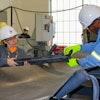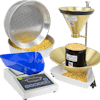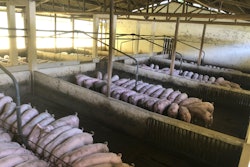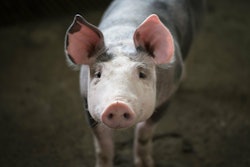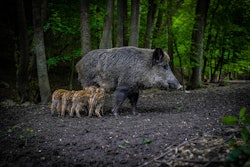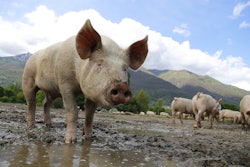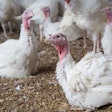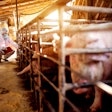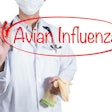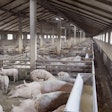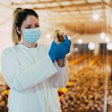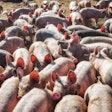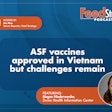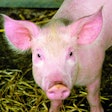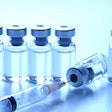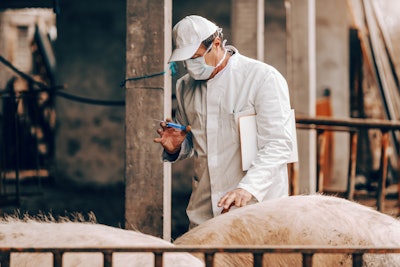
Pork production is a major U.S. agricultural industry with an estimated production value of US$30 billion in 2022, according to U.S. Department of Agriculture (USDA) National Agricultural Statistics Service. While never identified in the U.S., African swine fever (ASF) presents a very real threat to the nation’s multibillion-dollar pork industry.USDA National Institute of Food and Agriculture(NIFA) funding supports researchers developing surveillance, prevention and preparedness methods for this highly infectious animal disease.
First identified in the early 20th century,ASF is a viral diseasethat has impacted swine in Africa, Europe and Asia. In 2021, ASF was detected in both the Dominican Republic and Haiti. Since then, the USDA has worked to enhance already strong safeguards to protect U.S. swine from this costly disease. In support of this effort, USDA NIFA has funded numerous projects focused on different aspects of managing the threat ASF presents.
Ongoing ASF projects
Arizona State University researchers are working to develop portable electronic sensors that can be deployed worldwide to ASF-prevalent areas for rapid and sensitive detection of ASF-specific antibodies and antigens and to assist ASF containment in future outbreaks. Their goal is to design and validate a new metal nanoparticle-based assay platform and determine how effective this approach is as an ASF diagnostic tool.
At Virginia Tech University, scientists are investigating ways nanosenors can be used in disease surveillance. They are working to develop a nanosensor that can be used directly on pig farms to quickly detect the virus by producing a color signal easily seen by people, without the need for additional equipment.
Researchers with the Swine Health Information Center are working to reduce the risk of contaminated imported feed ingredients serving as a vector for ASF to enter the United States. They are investigating how stable the ASF virus is in soybean products commonly used in swine feed, as well as ways to improve diagnostic capabilities and surveillance tools for the detection of ASF virus in contaminated soybean products and feed.
Work on potential ASF vaccines
There is no safe, effective and commercially available vaccine for ASF in the U.S. The virus’ complexity, combined with a limited understanding of proteins that promote immunity, has hindered progress on vaccine development. A Kansas State University research team tested multiple vaccine candidates to see if they conferred protection to pigs against the ASF virus. Their results suggest that development of an ASF vaccine is feasible, but further development and study is needed.
University of Nebraska scientists have documented that pigs vaccinated with their live-attenuated vaccine were protected against lethal ASF virus infection, while those that were vaccinated with an inactivated vaccine were not. As a result, the researchers identified several viral proteins with the potential to be used as antigens to develop a sub-unit vaccine against ASF.
Scientists at Cornell University are working to identify ASF viral proteins that contribute to host immune responses and to define functions important for immune protection. Their research may provide important knowledge gains that will contribute to future vaccine development.
University of Illinois researchers are gathering critical foundational information on ASF protective antigens. This information may play a vital role in the development of safe and effective ASF vaccines.
Finally, at Louisiana State University, scientists are engineering three ASF prototype vaccines and will study their effectiveness.

